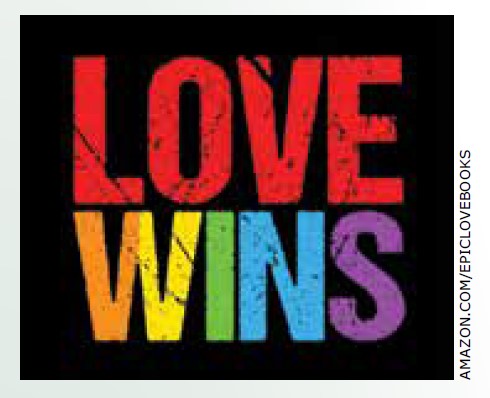
By Stuart Gaffney and John Lewis–
Last month, the U.S. Supreme Court held in Fulton v. City of Philadelphia that Catholic Social Services could openly discriminate against same-sex couples while receiving taxpayer money to certify foster parents and place children. It was a setback for LGBTIQ people, but the Court largely limited its decision to the particularities of the case without issuing a broad decision with sweeping implications. As the ACLU said, the decision fortunately “does not create a license to discriminate” against LGBTIQ people based on religion.
Stepping back from the formal legal analysis and potential implications of the decision going forward, we were particularly disturbed by something else as we read the majority opinion and concurrences: the Court’s characterization of religion itself.

As an initial matter, the Court was highly selective in its recounting of the Catholic Church’s history regarding care and respect for children. At the beginning of the majority opinion, the Court baldly proclaimed that “the Catholic Church has served the needy children of Philadelphia for over two centuries.”
The Court made no mention of a scathing 2018 grand jury report that found that Catholic priests in Pennsylvania had sexually abused over 1,000 children and likely thousands more, while the Church covered up the crimes for 70 years. Neither did the Court note that even as it was drafting its decision praising the Catholic Church, mass graves containing the remains of 1,000 Indigenous Canadians were found near state-funded Catholic residential schools that housed Indigenous children taken by the Canadian government from their families from the 19th Century to the 1970s. Many of these children were physically and sexually abused at these schools. And the decision said nothing about the deleterious effect on children of the Church’s ongoing condemnation of being gay as sinful.
What also troubled us was the degree to which Justice Alito in his concurrence, joined by Thomas and Gorsuch, seemed to consider anger and hatred toward others to be part and parcel of holding religious beliefs. Alito asserted that members of one religion don’t just have different perspectives on religion than members of other faiths; they harbor vitriol towards others’ beliefs, finding them “hateful,” “offensive,” and “insulting.” For example, Alito posited that “declaring that Jesus was the Son of God is offensive to Judaism and Islam, and stating that Jesus was not the Son of God is insulting to Christian belief.”
When we were growing up in the 1960s and 1970s, we weren’t taught that religious beliefs different from our own were offensive or insulting; they were simply different. “Love your enemies,” “love your neighbor as yourself,” and “forgive and be forgiven”—not anger and hatred—were religious dicta we remember.
It’s important to understand that Alito’s purpose in describing religion the way he does is to liken it to speech, including political speech, with its broad protections under the First Amendment. In an earlier speech case, Justice Kagan criticized the Court for “weaponizing the First Amendment” and “wield[ing]” it in “an aggressive way.” Alito seems to want to weaponize religion in a similarly aggressive way to allow religiously affiliated organizations, like Catholic Social Services, to discriminate against LGBTIQ people, women, and other people in ways that would otherwise violate the law.
Unfortunately, Alito, along with Thomas and Gorsuch, hold enormous power in our country. But so far, their extreme views as expressed in their Fulton concurrence appear not to be fully shared by a majority of the Court, not even by the three other very conservative Catholic Justices.
We believe that’s because our movement for marriage equality and LGBTIQ rights have embraced something far different: love, common humanity, human connection, and empathy. We know that our religious LGBTIQ friends and allies embrace these values as well. They have refused to allow unwelcoming leaders and members of their own denominations to rob them of their faith, and many of them work tirelessly for LGBTIQ equality within hostile religious institutions. They and many other people of faith do not consider religion to be a political slugfest.
Our message is getting through. According to the Pew Research Center, 61% of American Catholics favored marriage equality in 2019, compared to only 36% just 15 years before in 2004. Similarly, white Evangelical support for same-sex marriage rose from 11% to 29% during that same time. A May 2021 Gallop poll showed a whopping 70% of Americans overall in favor of marriage equality.
It’s hard-won progress, achieved through education and advocacy, forged by dedication, determination, and bravery, and grounded in love. As the Reverend Dr. Martin Luther King, Jr., wrote as he prepared for the 1963 Birmingham Campaign: “Darkness cannot drive out darkness, only light can do that. Hate cannot drive out hate, only love can do that.”
The deepest foundations of the LGBTIQ movement lie in our self-respect, love, and coming out about the truth of our lives. When Dr. King accepted the Nobel Peace Prize, the year after the Birmingham Campaign and the March on Washington, he proclaimed: “I believe that unarmed truth and unconditional love will have the final word in reality.”
In other words: “Love Wins.”
Stuart Gaffney and John Lewis, together for over three decades, were plaintiffs in the California case for equal marriage rights decided by the California Supreme Court in 2008. Their leadership in the grassroots organization Marriage Equality USA contributed in 2015 to making same-sex marriage legal nationwide.
Published on July 15, 2021
Recent Comments